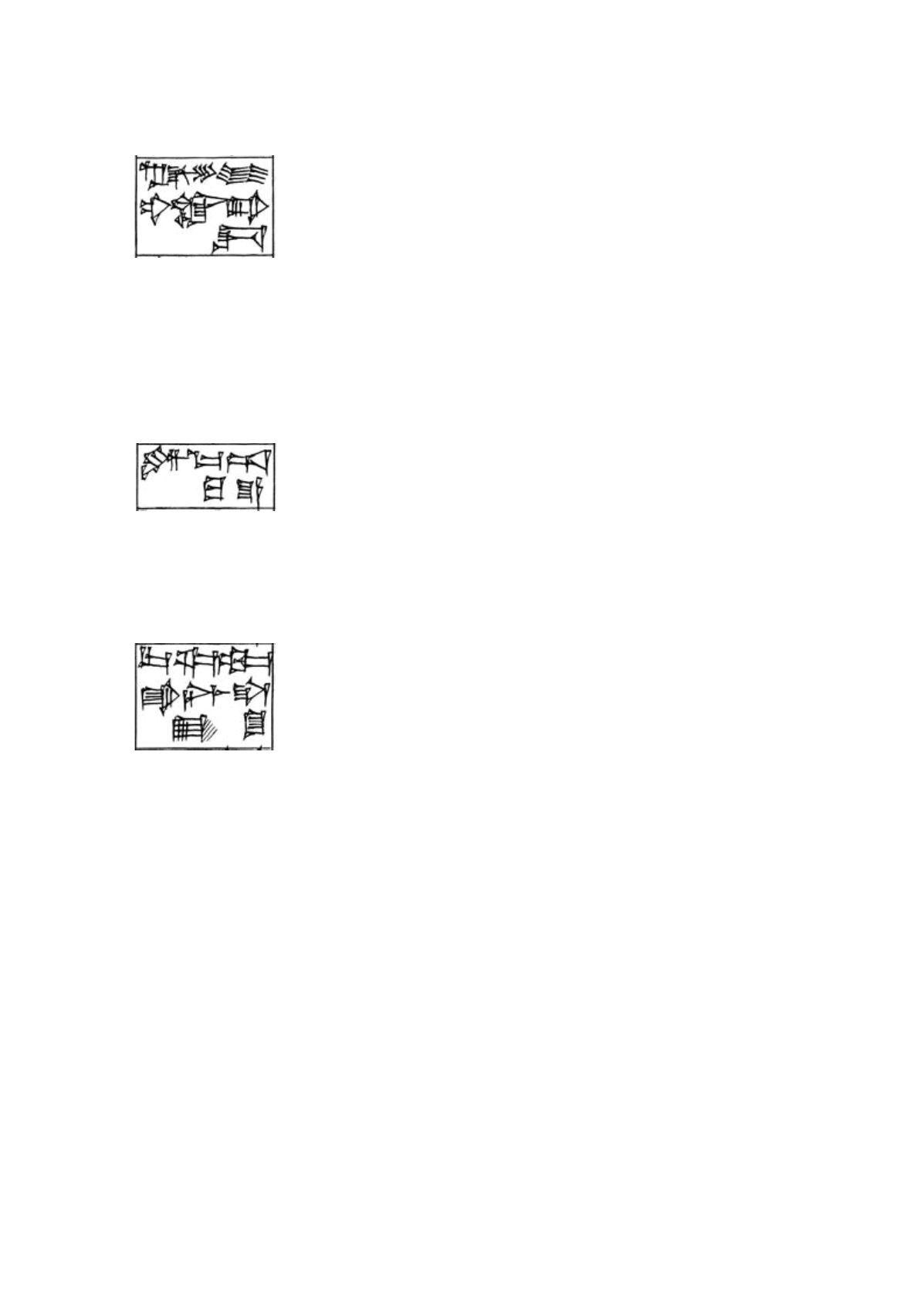

278
Gudea di Lagash – La costruzione del tempio di Ninjirsu - Cilindro A
A XXVI.13 – 715
ma
2
.gi
4
.lum
gud.alim.bi.dama
2
.gi
4
.lum
gud.alim.bi.dala barca Magilum e il Bisonte
(jiš)
ma
2
.gi
(4)
.lum : “a type of small sailing boat ('boat' + gilim, 'reed bundle')” (SL); “barque en roseaux munie
d’une voile” (PLS.97); “a boat” (PSD2.162); accadico
magillu
“tipe of boat; barge”
gud(gu
4
).alim : “bison ('bull' + 'bison')” (SL); alim : vedi A XXVI.4
.bi.da: postposizione del comitativo “with its” (TSL.100); cfr. A XI.10
A XXVI.14 – 716
im.ma.ab.dab
5
.e
i
3
.ba.b.dab
5
.e
egli fa sì che prendano posto.
Vedi A XXV.26, 28
A XXVI.15 – 717
ur.saj ug
5
.ga i
3
.me.ša.ke4
.eš
2
[ur.saj ug
5
.a i
3
.me.eš] .a.ak.eš 2Poiché essi sono eroi uccisi (da Ninjirsu),
[ur.saj ug
5
.a i
3
.me.eš]
.a.ak.eš 2: “zu dem des: Sie sind getötete Helden = weil sie getötete Helden sind”
(GSG1.117); “wegen des: Sie sind getötete Helden = weil sie getötete Helden sind” (GSG2.4); “zu dem,
dass sie getötete Helden sind = weil sie getötete Helden sind” (GSG2.28); la frase, che manca di
head
noun
(
Leitwort
), è nominalizzata e seguita dai due marker del genitivo e del terminativo indicanti il
concetto “a causa di” (vedi oltre)
ug
5
[EZENxBAD].a: participio passivo “getötet” (GSG1.144) di ug
5(4,7,8)
: “to kill; to die (singular and plural
marû
stem; plural
hamtu
, which is sometimes reduplicated)” (SL); “tuer, mourir” (PLS.148); “plural and
imperfect singular of usz (to die) uš (to die)” (PSD2.265); ur.saj ug
5
.a è propriamente singolare
“getöteter Held” (GSG2.73)
i
3
.me.ešè ‘Normalform’, terza persona plurale del verbo ‘me’ “essere” (GSG1.179, 182);
.eš
2
è il marker del terminativo (GSG1.87), nella forma attestata occasionalmente dopo una terminazione in
consonante e derivante dalla forma originale ‘.eše’ (GSG1.112-113); il terminativo indica qui un
rapporto causativo (GSG2.136). La frase causale è costruita normalmente con: ‘bar …
VERBO.a.ak.eš(e)
“for the sake of, because”; al posto del terminativo può trovarsi il locativo; inoltre, come nel nostro caso,
‘bar’ può essere omesso: “because they are dead heroes” (TSL.248)
















